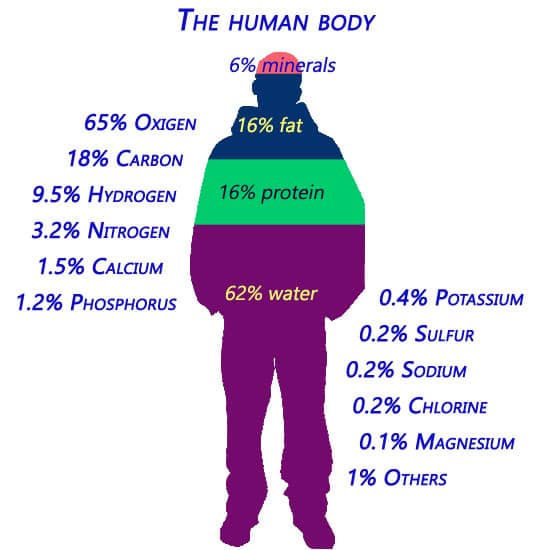What are Drug and Alcohol Cravings?
Drug and alcohol cravings are intense and overwhelming desires or urges to use a specific substance typically experienced by addicted individuals. They manifest as a physical and psychological need for the drug. It leads the individual to obsessively think about using, making it challenging to focus on anything else.
Various factors trigger cravings, including exposure to drug-related paraphernalia, stress, emotional states, social situations, or environmental stimuli associated with past drug use.
Cravings are a central aspect of addiction and can be one of the most challenging aspects to overcome during recovery. The strength and duration of drug cravings can vary depending on the type of drug, the severity of the addiction, and individual factors.
Understanding Cravings
In the above statement, the keyword is “desire or urge.” It may be easy to state that: “the person who abuses cocaine wants coke” or “the person who drinks vodka simply wants vodka.” This may be true, but it limits the physical understanding of what occurs when one is craving.
Mental cravings exist, but something can be done about the physical aspects. And maybe when this is done, it will also help the mental cravings.

Stages of
Addiction
Drug
Overdose

Human Body Building Blocks

When a person abuses some mind-altering substance, whether street drugs, alcohol, or prescription medication, it creates a chemical change. Fat, water, protein, and minerals are the four key weight masses in the body.
Six key elements make up 99% of the human body’s mass: oxygen, hydrogen, carbon, calcium, nitrogen, and phosphorus1. Magnesium, potassium, sodium, and others make up another 0.85% of the body’s mass. Of course, hydrochloride or ethanol, the primary psychoactive chemicals in cocaine and alcohol, are not part of it.

Alcohol
Overdose
How to
Quit Crack

Foreign Substances and Cravings
When a person ingests some foreign substance to get high or ease pain, it counters the body’s existing elements. For instance, alcohol burns up enormous amounts of vitamin B1.2. This partly explains the lightheadedness from two or three glasses of wine. As a person uses more of the substance, it depletes the body’s natural components—those listed above.
Over time the body becomes dependent on these foreign substances and depends on them for its existence. And it explains why substance abusers have a generally unhealthy appearance. So how do “drug and alcohol cravings” fit into this equation?
The Body and Alcohol or Drug Cravings
The body’s depletion of nutrients has a variety of symptoms. Appearing in this circumstance are muscle aches, skin sores, tooth pain, nasal secretion, chills, and bone aches, to name a few. If the body uses calcium to maintain skeletal structure when heroin burns up this element3, it will not be available for other body functions.
A person who stops using heroin will feel ill and complain about sore bones. The “drug craving,” in this case, is the bones screaming for some proper nutrition. But, instead of feeding the body nutrients, the person mistakes this for “the need for another fix” (dose of heroin). Taking more of the substance only numbs the pain and contributes to further deterioration of the body.
The above is one part of the craving issue. Another factor is not often observed; when it is, it is often mishandled or misinterpreted. That part is the effects of drugs and alcohol on the mind. We see how these toxic substances can destroy a body, but what of the mind?

Alcohol and
Depression
Drug Induced Psychosis

The Mind and Drug or Alcohol Cravings
To determine the effects on the mind, it would help to know some data on what the mind is. The mind is a sophisticated system that records the environment with full perception. The main ones are sight, sound, taste, smell, and touch. There exist many more perceptics. The mind stores these recordings.
Thus, one can remember or recall a moment of one’s past and recognize what was occurring then. This is memory. Memories are useful for predicting the future, solving problems, helping decision-making, etc. When a person uses drugs or alcohol, it also records all the perceptions of the moment. These recordings include feelings, emotions, sounds, and all other perceptions.
Alcohol Drug Cravings and Linked Perceptions
Did you ever walk by a bakery that smells of freshly cooked bread or pastries? What effect does it have on you? Or do you react to a song that used to be your song as a couple? Did you notice how it brings back memories and emotions? Some people have vivid pictures of moments in the past, and some relive emotions. The perceptic in the memory varies from person to person. The same happens with mind-altering substances.
A person records the moment they took a line of coke with the voice of a dealer saying, “here is your quarter-gram baggy.”
At some moment in the future, this person sees small baggies on a counter in a store, which triggers memories of coke baggies.
Which, in turn, connects to drug use, snorting, and the sensation that comes with the high. Soon after or at that moment, they feel the need to use cocaine again. This is a mental craving. There are other issues with drug and alcohol cravings, structural ones, at a chemical level.
Getting Rid of Drug Cravings
The best-known way to handle alcohol or drug cravings is first, to stop using mind-altering substances. Next is to enter a good addiction treatment program that helps one learn the tools to deal with future cravings. Call a professional referral counsellor for more information on facilities that treat misuse of drugs, alcohol, and other mind-altering substances.
Back to the FAQ Page
Addiction Series
- Alcohol and Depression
- Alcohol, Dangers in Stopping
- Alcohol Overdose
- Addiction – Beginning
- Addiction Symptoms
- Drug-Induced Psychosis
- Recognizing the Signs and Responding to a Drug Overdose
- How to quit crack cocaine?
- It’s Difficult to Quit Drinking
- Stages of Addiction
- The Functional “Addict” Defined
- Understanding Cravings
- What is an Addiction?
- Alcohol and Depression
- Alcohol, Dangers in Stopping
- Alcohol Overdose
- Addiction – Beginning
- Addiction Symptoms
- Drug-Induced Psychosis
- Recognizing the Signs and Responding to a Drug Overdose
- How to quit crack cocaine?
- It’s Difficult to Quit Drinking
- Stages of Addiction
- The Functional “Addict” Defined
- Understanding Cravings
- What is an Addiction?
Find out more about us.
Testimonials

Marc Bernard
Author,
Addiction Field Specialist,
Referral & Consultation Counsellor, Ethics in Practice – NAADAC
Reviewed by Susan. Chubbs Drug and Alcohol Treatment Specialist


